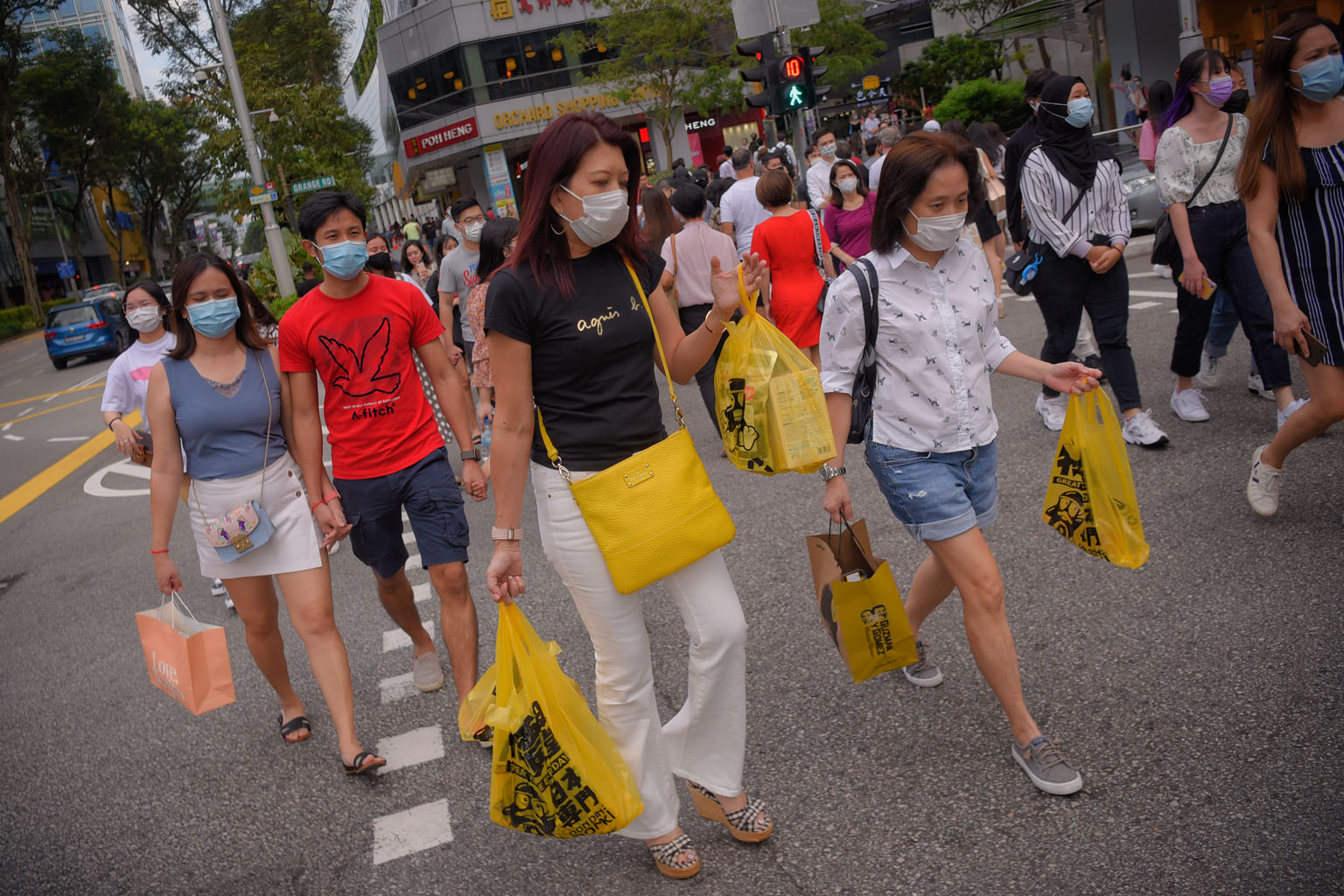Budget 2021
GST hike needed for rising health, social safety spending
Sign up now: Get ST's newsletters delivered to your inbox

Raising the goods and services tax is the responsible thing to do, given how there have been structural increases in Singapore's recurrent spending, stressed Deputy Prime Minister Heng Swee Keat.
ST PHOTO: MARK CHEONG
The goods and services tax (GST) has to be increased to fund rising recurrent spending in key areas such as healthcare and to provide for more social safety nets, Deputy Prime Minister Heng Swee Keat said yesterday.
A $6 billion Assurance Package set aside in last year's Budget will ensure that lower-income households will pay less than those who are well-off when the GST goes up, said Mr Heng, who set out in detail in his Budget round-up speech why the upcoming tax hike cannot be delayed or dropped.
Raising the GST is the responsible thing to do, given how there have been structural increases in Singapore's recurrent spending, stressed Mr Heng.
For instance, annual healthcare spending has nearly tripled from $3.9 billion in fiscal year 2011, to $11.3 billion in 2019.
"If we want to spend more, we have to raise the revenue... do not make irresponsible promises which burden future generations," he asked of MPs. "If these are recurrent needs - which have to be financed year after year - we must find recurrent revenues which we can collect year after year."
Singapore is not the only country that is planning ahead, and Mr Heng pointed out that even Saudi Arabia, a country blessed with huge oil reserves, recently introduced a 5 per cent value-added tax from 2018, which it increased to 15 per cent from last July.
The GST is set to go up from 7 per cent to 9 per cent between next year and 2025, and sooner rather than later.
RISING COSTS
Spending on healthcare is estimated to rise to 3 per cent of Singapore's gross domestic product (GDP) by 2030, said Mr Heng.
By that year, the number of Singaporeans aged 65 and above will go up from one in six to one in four, and healthcare spending will increase as seniors are four times more likely to be hospitalised than younger people and to stay twice as long. "Our demographic trends will mean higher spending, outstripping GDP growth," he said.
Mr Heng noted how in the Budget three years ago, he had mentioned that annual security spending by the Defence and Home Affairs ministries is also likely to rise, by 0.2 percentage point of GDP, to meet rising threats. And social spending, with more funds set aside for pre-school education and lifelong learning, will go up.
Infrastructure spending will also jump, with more resources needed to enhance Singapore's competitiveness, build homes and improve connectivity.
Difficult decisions will need to be made to face these growing spending needs, and Mr Heng noted that since 2007, the Government has increased other taxes to collect more from those who are better off. Wealth-related taxes, for instance, have become more progressive.
These funds are transferred to the lower income through social spending - all while the GST has remained at 7 per cent, he added.
The GST is not going to be raised now, as the economy is still recovering from the Covid-19 pandemic.
But Mr Heng noted the Government has been giving notice of the hike since Budget 2018, and some of the structural rise in spending will hit sooner rather than later.
For instance, public healthcare capacity is being ramped up, and a new integrated hospital will be built in Bedok North to be ready by 2030 that will serve the growing population in the east.
Mr Heng said: "If we defer this spending, we risk being unable to adequately care for our people when the need comes."
SUPPORT TO COPE WITH GST HIKE
Mr Heng assured Singaporeans that the $6 billion Assurance Package will help cushion the impact of the GST hike, with more help directed at lower-income households. This package will effectively delay the GST rate increase for most Singaporean households by at least five years, and lower-income Singaporeans will receive higher offsets of about 10 years' worth of additional GST expenses.
This is on top of existing benefits and transfers such as the permanent GST Voucher scheme, said Mr Heng. "These keep our overall taxes and transfers system fair and progressive," he said.
Last year, the top fifth of all Singaporean households by income paid 56 per cent of the taxes and received 11 per cent of the benefits, whereas the bottom quintile paid 9 per cent of the taxes and received 27 per cent of the benefits.
The Government is concerned for households in between, which paid 35 per cent of taxes and got 62 per cent of the benefits, he said.
Mr Heng rejected as baseless Non-Constituency MP Leong Mun Wai's observation that his Progress Singapore Party does not see Singapore facing any shortage of fiscal revenues in the foreseeable future.
Mr Heng stressed that MPs cannot be advocating national policy "on the basis of personal hunches". "It will be foolhardy to underestimate the risks and uncertainties we are facing," he added.


